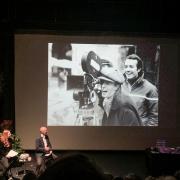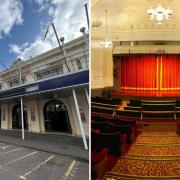Mark Tattersall, Artistic Director of Dorchester Arts believes that not only do the arts enrich the local community, it can also be run as a viable and successful business that people will want to invest in
With public and personal purses under pressure it is perhaps no wonder that arts organisations across the land are finding it hard to make ends meet. After all, the arts are just a luxury, aren’t they; a peripheral part of our lives that could be jettisoned without anyone noticing the difference. Well, as you might suspect, as Artistic Director at Dorchester Arts I don’t entirely agree.
On the other hand a recent thread of comments on a local newspaper website in response to an article about arts funding came as no surprise, the majority view being that spending on the arts is a disgrace in the current climate. So why the negativity? Where have we, the arts professionals, got it wrong?
Well there’s certainly some blame to be laid at our door. Arts organisations should be the best communicators in the business, but I’m frequently dismayed by our marketing failures and PR own-goals. It’s all too easy to get sucked into a world where obscure language and imagery leave potential audiences baffled and where a phrase like ‘eclectic works of documentation which utilise aesthetics and medium as host for meaning within socially engaged procedure’ is actually thought of as meaningful and useful in any way. Of course the arts should sometimes be challenging and edgy, but talking about it in ridiculous arts jargon presents an open goal to the sceptical.
We also fail to shout loudly enough about the crucial role the arts can play in building a healthy, happy community. In a world where communal experiences and social gatherings are rapidly being lost, the arts are a valuable ‘social glue’. Done well, the arts should bring strangers of all ages together and bind them in a way that’s all too rare in our busy modern lives. And whilst it’s true and wonderful that specific arts projects can directly keep kids out of jail or reinvigorate a previously neglected neighbourhood, we sometimes need to defend the intrinsic benefit to our community of the arts - full stop.
Finally, if we are going to ask public funders, private donors and business sponsors to invest in us we have to act like efficient, viable businesses. The word ‘business’ often provokes hostility in arts circles, summoning up images of corporate blandness and profit-driven populism, but until we admit that we are businesses and that ‘not-for-profit’ doesn’t mean making a loss, then many will struggle and some will go under. Good businesses innovate, take risks, have broad appeal and enrich their community - all of which sound like perfectly acceptable outcomes for arts organisations to me, and none of which paint a picture of the corporate-sponsored wasteland feared by some.
Since Dorchester Arts lost its regular Arts Council funding the reaction from our audiences, volunteers, funders and sponsors has been tremendous. I hope that’s in part because we are learning how to communicate better, demonstrate our social value and act like the kind of organisation in which people would want to invest their time and money.
Do you agree with Mark or do you have a different point of view? Email the editor helen.stiles@archant.co.uk, drop us a line via pen and paper or you can tweet your thoughts @dorsetmag #dorsetarts.
***
READ ON
• Cuts to bus services in Dorset - opinion page - Dorset has experienced some of the biggest cuts to bus services in the whole country. Rural areas have taken the hardest hit, but do we care that we’ve left some people stranded? Alice Cooke looks at the facts behind the cutbacks



























